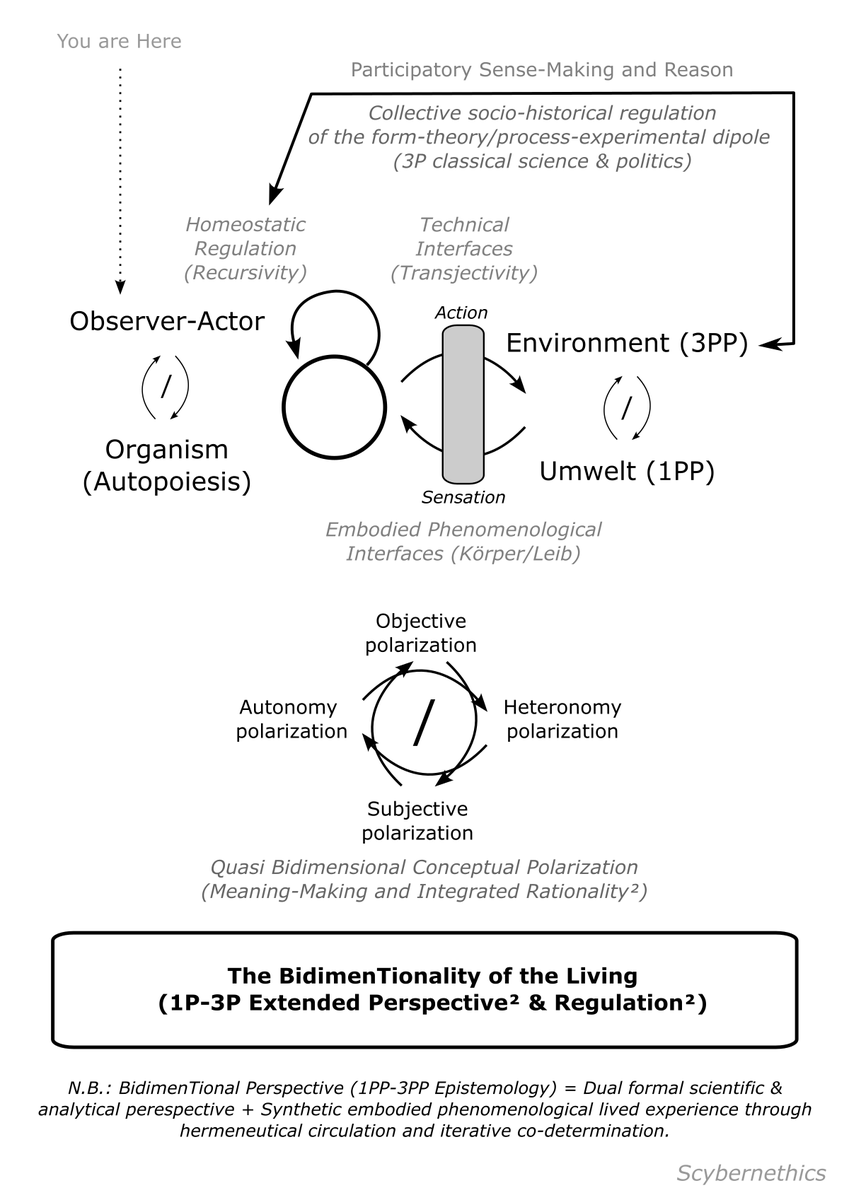[ Meta-Duality: no Ontology without Epistemology, no Epistemology without Ontology ]
My enacted "middle-way²"/scybernethics bidimenTional (quasi-bidimensional) view: there is no "form" ontology without epistemology.
Being and knowing are two faces of the same coin
1/
My enacted "middle-way²"/scybernethics bidimenTional (quasi-bidimensional) view: there is no "form" ontology without epistemology.
Being and knowing are two faces of the same coin
1/
https://twitter.com/ki_cog/status/1933804518141030703

but also needs to be clearly collectively distinguished, as the synthesis is for me personal and embodied, complex, ineffable, in no way normative.
2/
2/
Ontology (recursivity, being, awareness)
<-co-determination->
Epistemology (interaction, knowing, con-science)
= epistemo-ontology or onto-epistemology.
Both² are necessary for a viable future. This is "crucial" (cf. crux).
3/
<-co-determination->
Epistemology (interaction, knowing, con-science)
= epistemo-ontology or onto-epistemology.
Both² are necessary for a viable future. This is "crucial" (cf. crux).
3/
Meta-Dualism: scybernethics.org/overcoming-dua…
For a distinction² between false (illusion) vs erroneous (appearance taken for reality) in my thread, see:
x.com/search?q=from%…
For a distinction² between false (illusion) vs erroneous (appearance taken for reality) in my thread, see:
x.com/search?q=from%…
@threadreaderapp unroll
• • •
Missing some Tweet in this thread? You can try to
force a refresh













